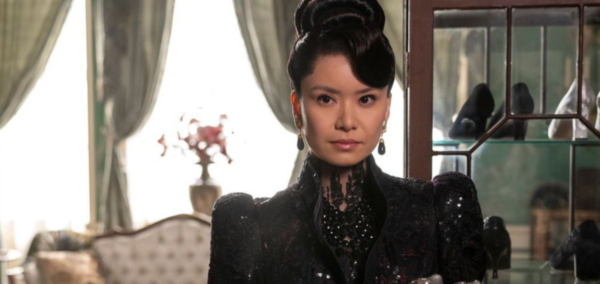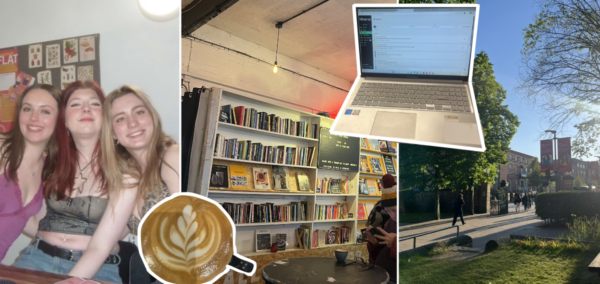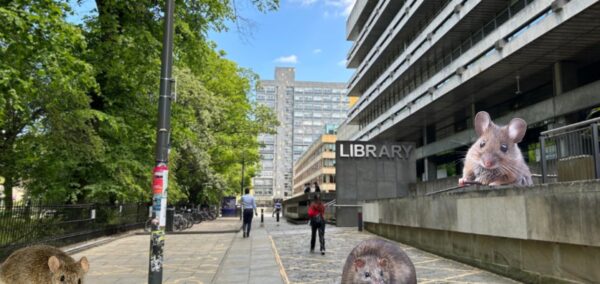
Mental health, anxieties and imposter-syndrome: A near-year introspective into Cambridge
Exploring the insecurities that made up my first year at Cambridge
Again and again, one idea continues to strike me. Once whilst walking in my college garden. Another time dressed up in robes and drinking wine at formal. And finally, one time scratching my hair in the library, five minutes before it closed. The idea that, for whatever reason, I didn’t deserve to go to Cambridge.
It’s no myth that the process to enter this university is difficult and prone to disappointment. Although I was beyond elated with my results when I got in, I couldn’t reconcile my own joy with the disappointment with my other peers who hadn’t been selected.
Upon opening UCAS, I suddenly belonged to the group of those who got in and divided from those who hadn’t. Months later and I still hesitate on pinning a “Cambridge class of 2026” to my profile. On countless occasions, when asked the age-old question of what university I attend, my mind blanks as I try to figure out if I should avoid the question or confirm it.
It’s almost as though there’s this block in my mind that makes it near-impossible to reconcile my success with my personal self. This isn’t a problem that only I struggle with. Countless students can’t navigate this block. So why is it then, that even after we overcame all of our personal odds, do we feel as though we don’t deserve to belong to this university?

Image credit: Leah Whiting
‘Why did you choose to go to Cambridge?’
Most Read
A lot of my friends, in response to that question, describe its prestigious history or prolific alumni. For me its about sports, church, and beautiful grounds. Just arriving gives this huge impression of prestige. Already, just a couple days into the experience, I felt like an outsider.
No doubt, Cambridge is hard. That’s the first thing anyone would tell you. In my first formal, one member of staff described it as “a run across a battlefield where even hesitating for a second would kill you.” There’s an almost self-congratulatory element to this pressure: The defining experience of this place is its difficulty, and that’s one part that gives this university life meaning, for better or for worse.
There are posters around the campus and online websites that dictate the importance of mental health here. Several steps: You have your DOS, your senior tutor, the college nurse, the mental wellbeing service. Ideally, there shouldn’t be this stigma towards getting help but nonetheless there remains insecurity around some of these programmes.
The central idea is that somehow failing to keep up with this university’s marathon-sprint means you’re not living up to your utmost potential. The freshers I see partying, going to every formal, getting internships and participating in societies, I wonder how they don’t struggle.
What about those who aren’t fan of that life? In some ways, it feels as though we don’t deserve to struggle as we have no real “reason”. With my fewer obligations, I felt as though I didn’t have a right to struggle.
This is a problem that pervades much of our life – our attempts at persevering towards an impossible “ideal” of a student only to come up short. The prestige of this university demands a committed student. So when I’m frazzled, working endlessly to meet deadlines out of a fear of disappointing my supervisors, there’s always this small voice in my head that tells me: What a disappointment it is, to struggle as I do?

Image credit: Leah Whiting
A cosmopolitan world
In Michaelmas, I was talking to one of the university’s mental health nurses in a mandatory meeting. She told me that over the years, it’s become increasingly common for students to come to this university having experienced mental health issues. This is emblematic of an ongoing trend in the UK.
It’s impossible to generalize the troubles individuals have gone through before going to university. What can be said is that most of us try to bring our complex lives to Cambridge only to come into conflict with its walls and expectations. Our world exists in a particularly dangerous and uncertain time, and a lot of us would’ve lived through grief, trauma and pain at one point. No doubt most of us will struggle, but it’s vital to recognize and balance out our opposite ideals of expectation and ability.
Approaching exam season
It’s now Easter term and I’ve learned to let myself live a little. The process is still challenging, but I’m on the way there. There are some posts on Camfess that suggest: “Freshers, liven up! First year exams don’t count! Live in a little!”. But that isn’t as simple as it sounds, really.

Image credits: author’s own screenshot via Camfess
For some, we have impossible expectations that we will never reach. As unlikely as this scenario sounds, nobody wants to be the person that gets accepted to Cambridge and drops out.
But despite the stress and this imposter syndrome, the university still has its magic. I’m still excited at the prospect of talking to academics, attending lectures or going to the buttery to chat with someone, with the conversation turning from something as simple as what pop culture trend is happening, to a philosophical conversation on race and class. I still believe, or at least want to believe, in the wonder of this institution.
Maybe that forms some of my ambivalence and anxieties about not performing up to expectations. But nonetheless, I, and most likely many of you reading this article, will need to let ourselves go.
Feature image credits: Deneil Payumo
















